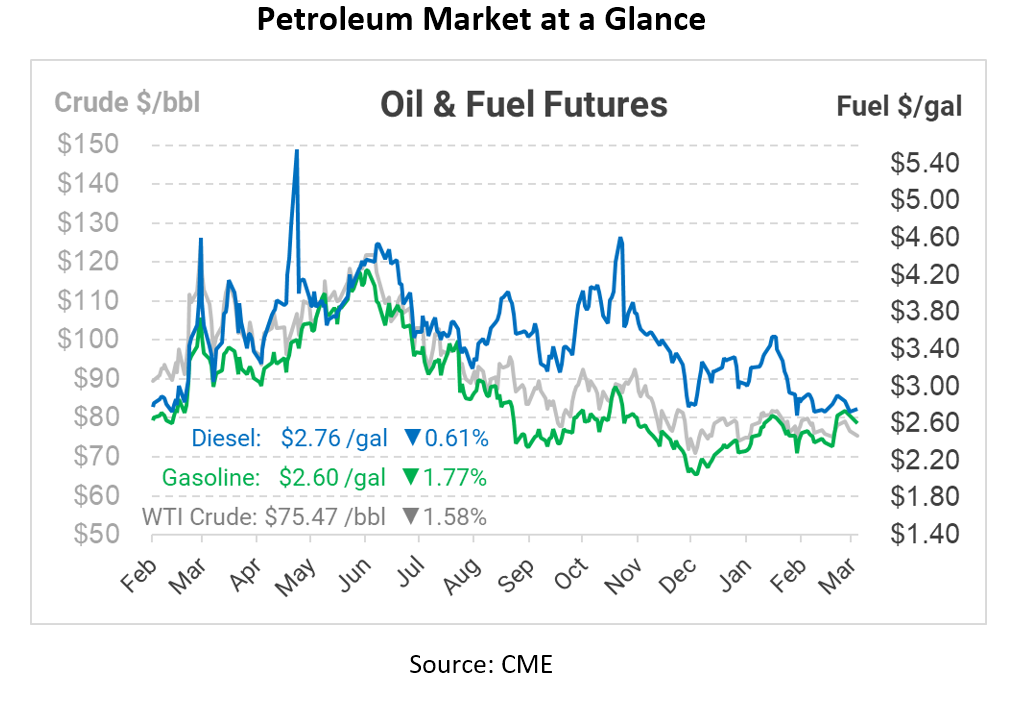
Construction Fleets: 4 Steps To Efficiently Buy Fuel
The construction industry keeps North America growing, and their fleets are the engine that makes change a reality. They require a steady supply of fuel to continue running and complete projects on time.
Because your equipment can’t stop running, it’s critical to secure the fuel you need in a competitive way. The method for buying fuel may vary depending on the size and type of the fleet, but four steps can make the process more efficient and cost-effective.
1 – Establish a Fuel Budget
The first step in buying fuel for a construction fleet is to establish a fuel budget. It will ensure the fleet can access the fuel needed without overspending costs. When creating the budget, fleet managers should consider factors such as the size of the fleet, the project being completed, and the fuel efficiency of the vehicles. Many fleets have extremely accurate burn schedules based on a given project bid. If you cannot pass on changing fuel prices to your end-customer, you may need to lock in a fixed price to secure your price for the duration of the project.
2 – Partner with a Reliable Fuel Supplier
Finding a reliable fuel supplier is critical for construction fleets. The supplier must be able to provide consistent and timely fuel delivery, as well as competitive pricing. Some construction companies have building teams that move around an area to cover different projects as needed. If this is the case, make sure your supplier can keep your fleet fueled no matter where your teams go, even if they move to another city.
3 – Choose the Right Fueling Option
Different fueling options are available for construction fleets, including mobile fueling, on-site storage, and fleet cards. Each option has its advantages, and the best choice will depend on the specific needs of the construction site and fleet.
Mobile fueling – A very convenient service where the fuel is delivered on-site directly into vehicles, equipment, or other machinery. This method allows companies to put time back in their workers’ hands. Mobile fueling is especially advantageous if your equipment cannot go over the road or if it moves very slowly and takes time to drive to a bulk tank.
On-site Bulk Storage – One of the most significant advantages of on-site storage is the price break with purchasing fuel in bulk and not having to wait on delivery services. Knowing how much fuel you have allows you to focus on completing the projects. This option is convenient and can help save time and money, and many fleets find renting a tank from their fuel supplier to be an ideal approach.
Fleet cards – Another excellent option for construction fleets, especially for smaller equipment like pick-ups that drive home at the end of the day. Fleet cards can be customized according to the fleet’s needs or what they’re trying to accomplish. They offer convenience and can help track fuel usage and expenses.
4 – Monitor Fuel Usage
Monitoring fuel usage is essential for managing fuel expenses and ensuring the fleet has enough fuel to complete projects. Fleet managers should regularly track fuel usage and expenses and identify trends or inefficiencies impacting fuel costs. Ask your fuel supplier about the management tools they offer so that you can get visibility into all your fuel operational and financial transactions.
Mansfield offers complete solutions for your construction fleet. If you are looking for a more efficient and cost-effective way to ensure you get the fuel you need, call our experts and let them help you find a solution right for you and your business.
This article is part of Daily Market News & Insights
MARKET CONDITION REPORT - DISCLAIMER
The information contained herein is derived from sources believed to be reliable; however, this information is not guaranteed as to its accuracy or completeness. Furthermore, no responsibility is assumed for use of this material and no express or implied warranties or guarantees are made. This material and any view or comment expressed herein are provided for informational purposes only and should not be construed in any way as an inducement or recommendation to buy or sell products, commodity futures or options contracts.






